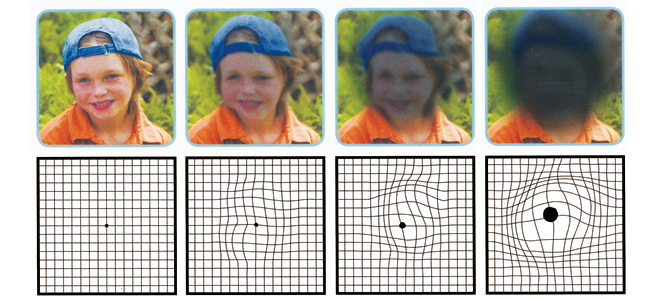Vitamins A & E also could improve vision in macular degeneration.
Many other studies show risk reduction from various nutrients including vitamins E and C as well as beta carotene. Reduced risk is also shown with high blood levels of beta carotene, selenium, and vitamins C and E.

Because the retina is the most metabolically active tissue in the body, it requires a high level of antioxidant defense. Levels that are protective against cataracts may not be adequate to prevent macular changes.
The levels generally available in foods and in typical supplements have no significant impact on macular degeneration. The average multi-vitamin contains potencies which have only a slight beneficial effect on AMD.
Instead, optimal or even mega-doses are sometimes needed. This may be partially due to decreased digestive powers, reducing absorption of important vitamins, minerals and other nutrients.
And since it can take up to nine months for retinal cone receptor cells to rejuvenate, clinical trials must be continued at least this long if potential improvement is not to be missed simply due to lack of persistence.
